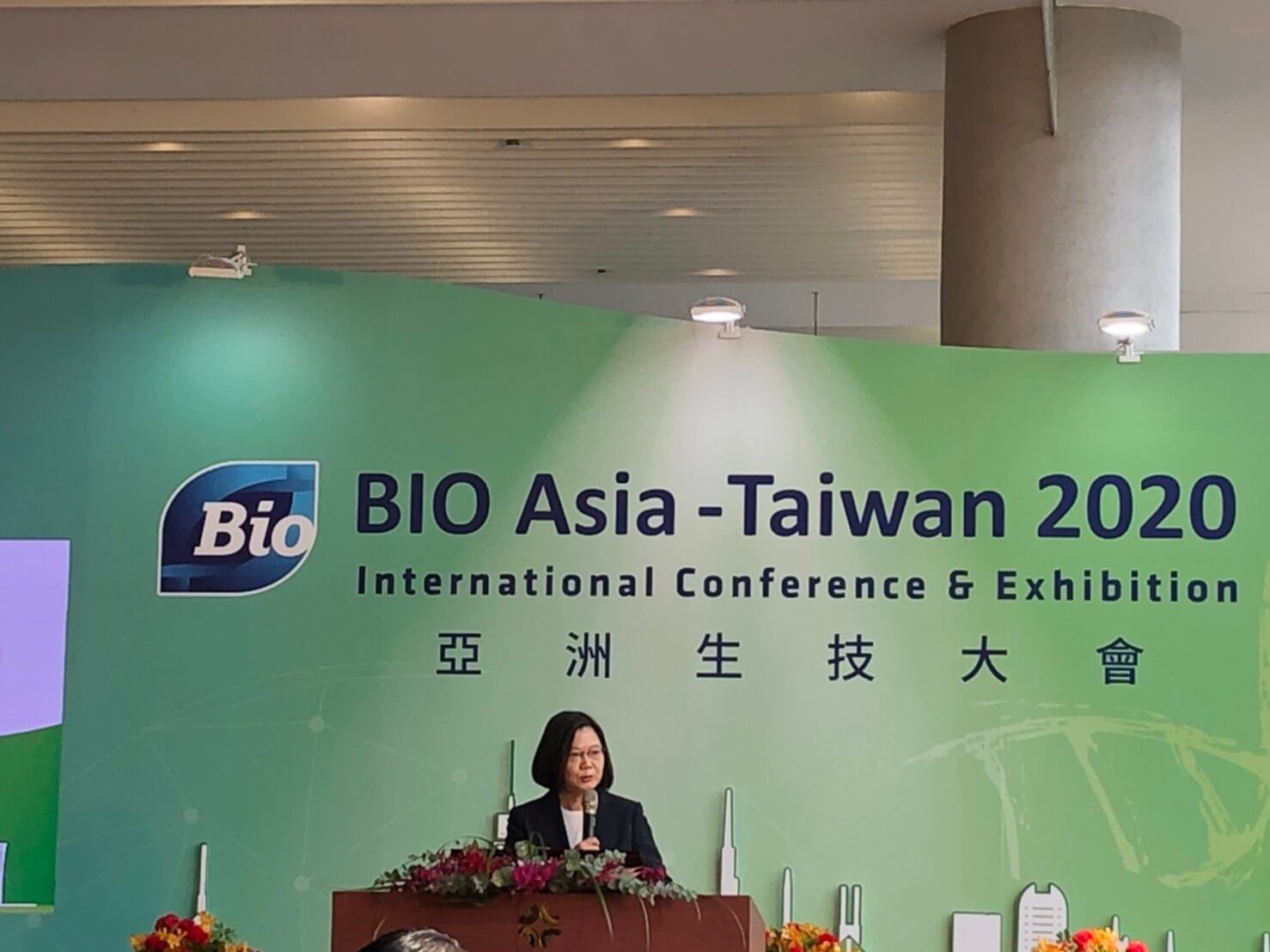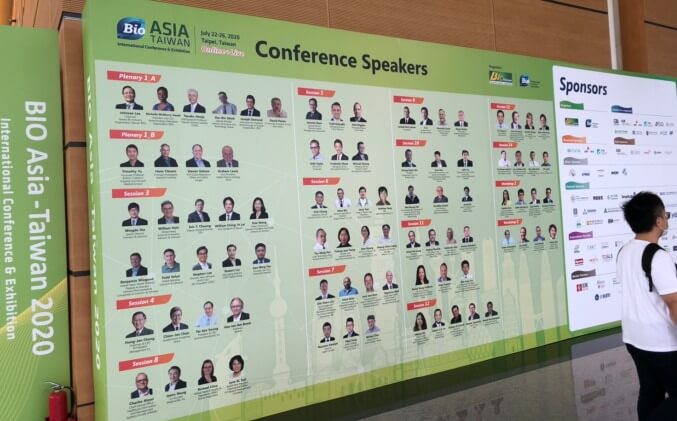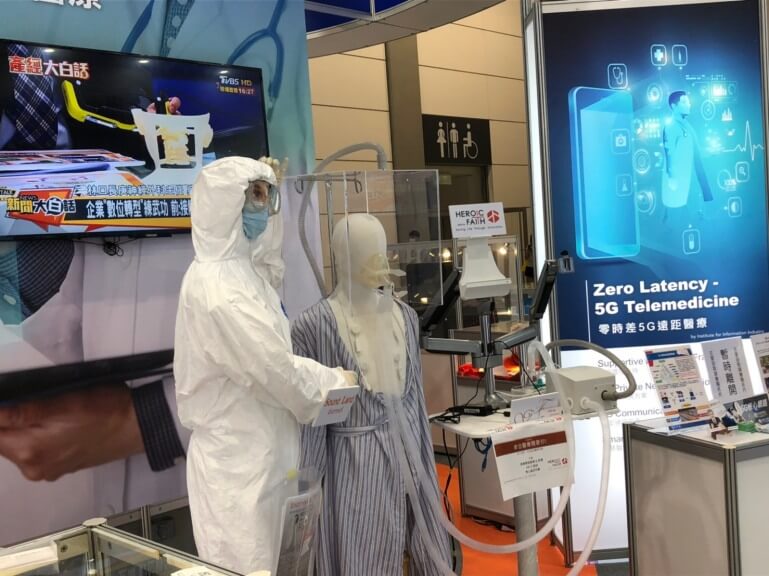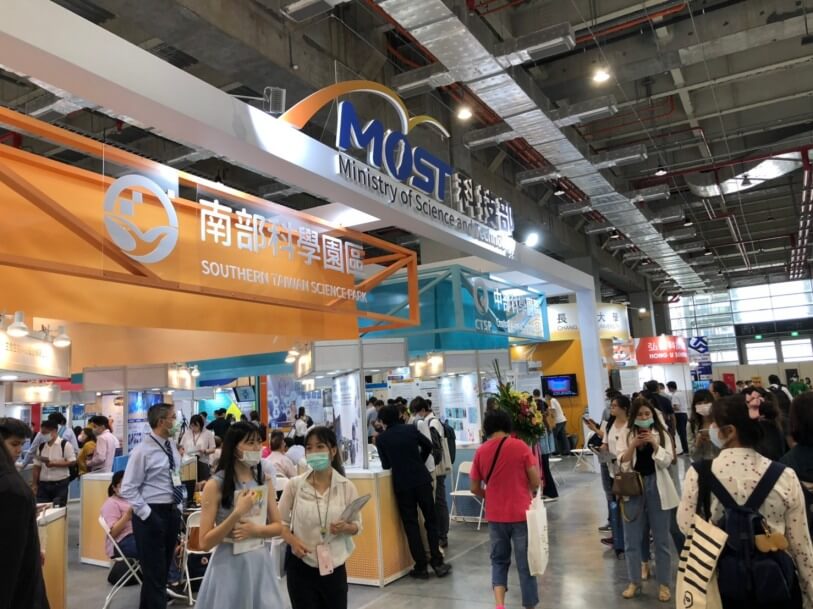Top Highlights of BIO Asia-Taiwan 2020
By Rajaneesh K. Gopinath, Ph.D.
BIO Asia-Taiwan 2020 is one of the biggest biotechnology conferences in Asia jointly organized by the Biotechnology Innovation Organization (BIO) and the Taiwan Bio Industry Organization (Taiwan BIO). In light of the ongoing COVID-19 crisis, the event was held in a hybrid (Online + Live) format this year. It covered five major themes: COVID-19 pandemic, advanced therapies, precision medicine, digital therapeutics, biotech investment, and regional cooperation. Here are some select highlights.
The BIO Asia-Taiwan conference, which ran from July 22-26, 2020, featured virtual conferences and seminars attracting biopharma executives, biotech investors, and healthcare industry leaders from North America, Europe, and Asia. The live exhibition witnessed over 45 pitches from biotech startups, over 450 physical exhibitions (1300 booths), 200 online virtual booths, and 2000 BIO One-on-one Partnering events that showcased the latest innovations in biotech, MedTech, and digital health.
First Conference Since COVID-19
“It’s the first large scale biotechnology exhibition to be held anywhere in the world since the onset of the pandemic,” said Johnsee Lee, chairman of the BIO Asia-Taiwan 2020 organizing committee. “We might not be able to get everyone here in person, but nothing stops our innovation, nothing stops our collaboration.”
President of Taiwan, Dr. Tsai Ing-wen, praised the current impressive state of the biotech industry. “Taiwan’s biotech sector is performing remarkably well, with 87 percent revenue growth in the last year. Our clinical trial standards are recognized widely, with more and more overseas trials locating here. Investment in biotech reached NT$55 billion (US$1.8 billion) last year,” she said.

She was especially proud of Taiwan’s pandemic strategies, “We’re sharing our pandemic prevention experience worldwide. We’ve done a great job, and now the world is taking notice. Taiwan can help, and Taiwan is helping,” said Dr. Tsai.
Opening Remarks
Dr. Michelle McMurry-Heath, President and CEO of BIO, delivered the opening remarks. She addressed the turbulence caused by COVID-19 on human life, healthcare, and the economy globally and termed them as major challenges of the industry. She acknowledged the efforts of the scientific community, especially scientists who are striving to develop cures. She also welcomed the collaborations between companies, to accelerate vaccine production and the CEOs and entrepreneurs who focus on science. “This is the biotech sector’s finest hour,” she said.

Dr. Heath expressed her gratitude to President Tsai for successfully leading Taiwan’s efforts in containing the COVID-19 pandemic and making BIO Asia-Taiwan 2020, a reality. Speaking on the prospects of the event, she reported that partnering attendees of BIO Taiwan 2020 had sent 3,000 meeting requests, indicating the importance of this conference in the global arena. “We actually saw increased engagement last month when BIO took our International Convention virtual for the first time. Our education sessions tripled in attendance compared to the previous year when attendees came in person,” she added.
Cancer Immunotherapy and Tumor Organoids Lead Plenary Themes
Prof. Tasuku Honjo rendered the opening plenary on the remarkable progress of cancer immunotherapy and its prospects. He reckons that the field would further advance to treat more cancers, and perhaps, in the next 15 years, “cancer may become one of the chronic diseases.” He concluded that the 21st century might witness cancer getting controlled by immunotherapy with advancements such as microbiome manipulation.
Prof. Hans Clevers of Hubrecht Institute talked about his research on organoids and how cancer organoids serve as a wonderful platform for testing drug combinations. He described organoids as “patients in the lab,” stating the merits of the organoid technology platform, and the immense potential it holds in advancing different aspects of drug discovery.
Finding Cures in the Crisis
This year’s event was aptly themed “Finding Cures in the Crisis’. It was dominated by discussions about the tremendous efforts undertaken by the scientific community to combat COVID-19 and its impact on the biotech industry.
Joseph Damond, Executive Vice President, International Affairs, BIO, talked about the emergence of new biopharma, the pandemic’s impact, and Taiwan’s role in strengthening the biotech ecosystem in Asia. In his view, Taiwan is an advantageous position in the current scenario. It can move up the biotech value chain with its continued emphasis on research, policies, and innovation.

Dr. David Flores of BioCentury admitted that biopharma funding would get difficult due to the challenges in clinical data production. However, a more significant challenge in the post-COVID era would be the inability of companies to build new investor networks and, conversely, the ability of investors to find new assets.
Dr. Graham Lewis of IQVIA presented a perspective on the post-COVID changes to look forward to in the pharma and healthcare sector. He opined that companies would have to re-assess missions and their overall strategy to support health systems, accelerate digital transformation, build or strengthen capabilities to enable novel patient support programs, and re-evaluate everything from launching, resourcing models, deployment development, portfolio priorities, and supply chain.
The Emergence of Taiwan as a Beacon of Pandemic Management
Two full sessions were dedicated to the “Combating Pandemics” topic. In session A, Dr. Chien Jen Chen, former Vice President of Taiwan and a renowned epidemiologist, underscored how Taiwan’s government, healthcare professionals, and pharma companies were proactive in controlling the COVID-19 outbreak.
Among the several speakers who highlighted vaccine manufacturing efforts, Dr. Han van den Bosch introduced a protein subunit vaccine developed by Medigen in collaboration with NIH-NIAID and Dynavax. Medigen aims to complete ongoing preclinical studies by fall 2020 and advance to clinical trials by June 2021. Concurrently, it plans to focus on manufacturing and scale-up to provide up to 200 million doses by the end of 2021.
In Session B, Charles Alessi of HIMSS International commended the Asian countries, especially Taiwan, for the deployment of some of the most effective pandemic mitigation efforts in recent times.“If there is something we have learned, we have largely learned it from you (Asia Pacific) because, to be frank, the place to look at for the response, certainly for the first wave of COVID-19 crisis, is to the Asia Pacific,” he concluded.
Dr. Jane Tsai from YFY Biotech Management Company stressed how we need to plan for post-pandemic requirements of regulatory networks and touched upon some possible paths forward such as precision medicine, digital health, building innovation infrastructures, and proactive data analytics with real-world evidence.
Jack Li, Professor at Taipei Medical University, mentioned that at the peak of the pandemic in Taiwan, the outpatient load decreased by 30 percent. “It’s the worst time for humankind, but it’s also the best time for biotechnology and smart healthcare. If we don’t get smarter through computerization, through AI, etc., then we’re not going to make it,” he said. “And we’re in the best place to innovate smart healthcare. Because in Taiwan, a medium-sized country with a centralized healthcare insurance system, we’re very familiar with IT, and we use a lot of technology in our hospitals. And if we can’t do it, I don’t think anyone can do it.”

Asia-Based Biotech Investment
Todd Kaloudis of Cobro Ventures revealed why the US venture capitalists (VCs) team up with Asia-based investors. He observes that investors from Asia are great at fostering relationships and offer local market expertise. He mentioned that having investors from various countries, including Asia, is a way to build optionality and gives early-stage startups a sense of confidence.
Talking about the increased participation by Asian VCs, Neil Higgins of LocustWalk stated that in the past decade has seen a significant increase in the amount of investment capital by China-based VC funds in private US biotechs, with numbers skyrocketing to $1.5 billion in the fourth quarter of 2017.
Michael Huang, Managing Partner, Taiwania Capital, said that in 2017 alone, Taiwan had conducted over three hundred multicentral and multicentric trials. As a result, private investments have been pouring in with 1.8 billion USD invested in 2018 alone. He opines that cross-border collaboration, pipeline enhancement, and establishment of R&D centers can play a significant role in making Taiwan a leader and a biotech hub of Asia.
Conclusion
Liver cancer causes one million deaths a year, and 70 percent of them occur in Asia. Dr. Cheng Ann-Lii, President of National Taiwan University’s Cancer Center, updated on the ever-improving liver cancer therapy toolkit, while noting that “all the therapeutic milestone achievements were done by Taiwanese investigators.” The recent approval of Atezolizumab, plus Bevacizumab for the treatment of unresectable or metastatic hepatocellular carcinoma in patients without prior systemic therapy, is the first real improvement in tumor response rate, overall survival, toxicity and quality of life since the approval of Sorafenib 13 years ago.

After three days of conference talks, BIO Asia–Taiwan 2020 proceeded with the Exhibition, Company Presentation, Entrepreneur Pitch, and Workshop programs in the final two days. These sessions, including the online networking lounges, and the online exhibition were made available online to registered attendees. The BIO One-on-one Partnering™ platform enabled business meetings online, with nearly 3,000 meetings expected to be held over the full five days of the convention. Overall, the meeting was a terrific success and more so because it was conducted in the middle of a global pandemic.
Related Article: The Rise of Asia as a Destination of Biotech Investment and Opportunity
©www.geneonline.com All rights reserved. Collaborate with us: service@geneonlineasia.com







